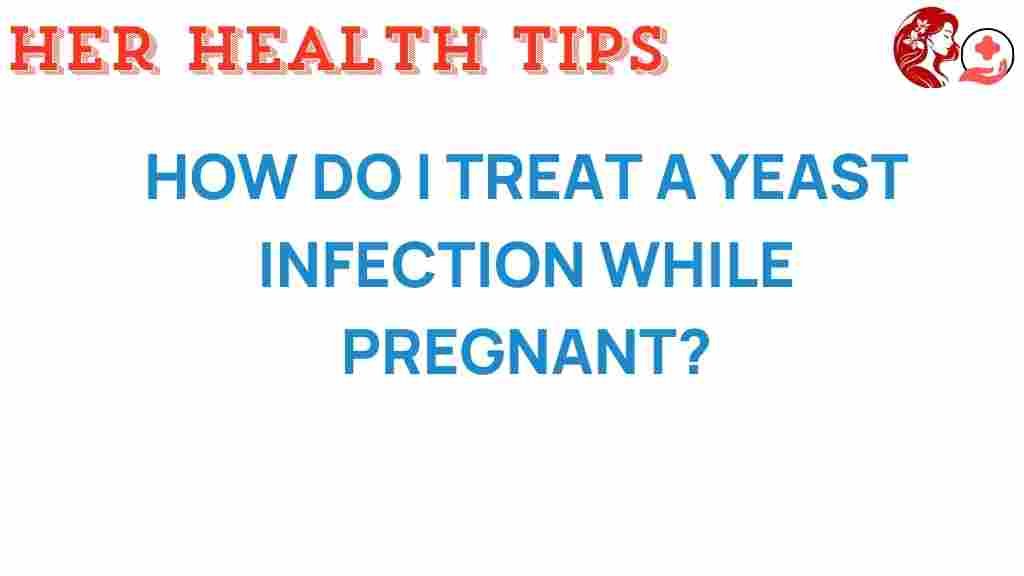Pregnancy is an exciting time for many women, but it can also come with a variety of health challenges. One common issue that many pregnant women face is a yeast infection. Understanding how to manage this condition is crucial for maintaining overall health during this important time. In this article, we will explore the symptoms, treatment options, and prevention strategies for yeast infections during pregnancy.
Understanding Yeast Infections
A yeast infection, also known as candidiasis, occurs when there is an overgrowth of the fungus Candida in the body. This can happen for various reasons, including hormonal changes, antibiotic use, and a weakened immune system. During pregnancy, hormonal fluctuations can create an environment conducive to yeast growth, making it important for women to be aware of the symptoms and treatments available.
Symptoms of Yeast Infections
Recognizing the symptoms of a yeast infection is the first step in addressing the issue. Common symptoms include:
- Itching and irritation: Persistent itching in the vaginal area.
- Unusual discharge: Thick, white discharge that resembles cottage cheese.
- Burning sensation: Discomfort during urination or intercourse.
- Redness and swelling: Inflamed and swollen vulva and vaginal area.
If you experience these symptoms, it’s essential to consult with a healthcare professional for proper diagnosis and treatment options.
Treatment Options for Yeast Infections During Pregnancy
When it comes to treating a yeast infection during pregnancy, it’s important to choose safe and effective options. Here are some common approaches:
1. Over-the-Counter Antifungal Treatments
Many over-the-counter antifungal medications are considered safe for use during pregnancy. These typically come in the form of creams, suppositories, or tablets. Always consult your healthcare provider before starting any treatment to ensure it’s appropriate for your stage of pregnancy.
2. Prescription Medications
If over-the-counter treatments are ineffective, your healthcare provider may prescribe a stronger antifungal medication. These prescriptions are carefully evaluated to ensure safety during pregnancy.
3. Natural Remedies
Some women prefer natural remedies for yeast infections. While scientific evidence may be limited, some natural options include:
- Probiotics: Eating yogurt with live cultures or taking probiotic supplements may help restore the natural balance of bacteria in the vagina.
- Coconut oil: This oil has antifungal properties and can be applied topically.
- Garlic: Known for its antifungal effects, garlic can be consumed or used in topical applications.
Always discuss any natural remedies with your healthcare provider before trying them, especially during pregnancy.
Health Tips for Managing Yeast Infections
Maintaining good health during pregnancy is critical, and this includes taking steps to prevent and manage yeast infections. Here are some essential health tips:
- Wear breathable clothing: Opt for cotton underwear and avoid tight-fitting clothing to reduce moisture.
- Maintain good hygiene: Keep the genital area clean and dry. Avoid douching or using scented products.
- Eat a balanced diet: A diet rich in fruits, vegetables, and whole grains can support your immune system.
- Stay hydrated: Drinking plenty of water helps flush out toxins and maintain bodily functions.
- Limit sugar intake: Yeast thrives on sugar, so reducing sugar and refined carbohydrates can help prevent overgrowth.
Prevention of Yeast Infections During Pregnancy
Preventing a yeast infection is often easier than treating one. Here are several strategies to help you avoid infections during your pregnancy:
- Practice safe sex: Use protection to reduce the risk of infections.
- Change out of wet clothes quickly: After swimming or exercising, change into dry clothes to prevent moisture buildup.
- Limit antibiotic use: Only take antibiotics when necessary, as they can disrupt the natural balance of flora in your body.
When to Seek Healthcare
While yeast infections are common, it’s important to know when to consult a healthcare professional. Seek medical advice if:
- The symptoms do not improve with over-the-counter treatments.
- You experience recurrent yeast infections.
- You have severe symptoms or experience pain.
- You are unsure whether your symptoms are due to a yeast infection or another condition.
Your healthcare provider can help determine the cause of your symptoms and recommend appropriate treatment options.
Troubleshooting Tips
If you find yourself dealing with a yeast infection during pregnancy, here are some troubleshooting tips to help you manage your symptoms:
- Stay calm: Remember that yeast infections are common and manageable.
- Track your symptoms: Keeping a journal of your symptoms can help you communicate effectively with your healthcare provider.
- Follow instructions: If you are prescribed medication, follow the instructions carefully for the best results.
- Give it time: It may take a few days for symptoms to improve after starting treatment.
Conclusion
Managing a yeast infection during pregnancy requires awareness and proactive care. By understanding the symptoms, treatment options, and preventive measures, women can navigate this common issue more effectively. Always remember to consult with your healthcare provider to ensure that any treatment you choose is safe for you and your baby. For more information on women’s health during pregnancy, you can visit this resource. Taking charge of your health is essential, and with the right knowledge and support, you can ensure a healthier pregnancy journey.
Additionally, to learn more about yeast infections in general, check out this external link for comprehensive insights and tips.
This article is in the category Reproductive and created by HerHealthTips Team
